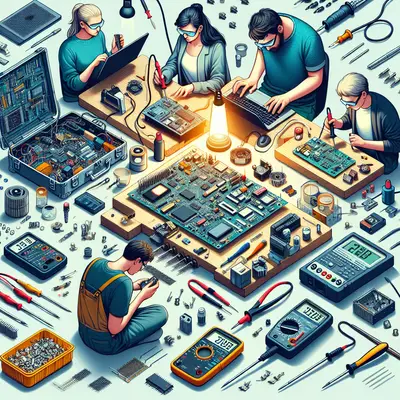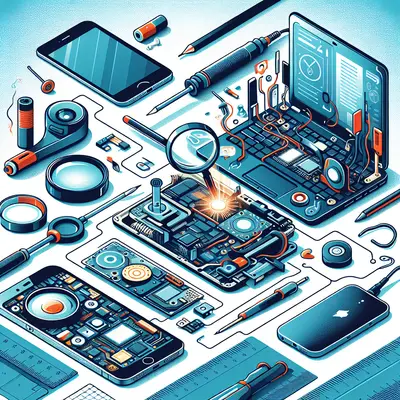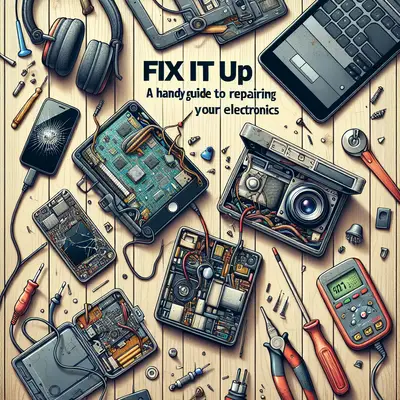We've rounded up five essential electronics repair tips that will give you a leg up on your DIY electronics repair journey. Let's dive in!
Understand the Problem
Before you start disassembling your device, take a few minutes to understand the problem. The internet is a wealth of information, and a quick Google search can provide you with a multitude of solutions. Check out forums or websites dedicated to the specific device you're looking to repair. Knowledge is power, and understanding the problem is the first step in any successful repair.
Invest in the Right Tools
Having the right tools at your disposal can make all the difference. Invest in a quality electronics repair kit that includes a variety of screwdrivers, tweezers, spudgers, and other essential tools. A multimeter, an indispensable tool for testing and measuring electrical values, is also a must-have.
Practice Safe Disassembly and Reassembly
One of the most crucial aspects of electronics repair is disassembling and reassembling the device correctly. Take pictures or notes as you disassemble to ensure you can put everything back together correctly. Remember, force is not your friend here. If something isn't coming apart easily, double-check to ensure you haven't missed any screws or clips.
Learn to Solder
Many electronics repairs will require some level of soldering, especially when dealing with circuit boards. If you're new to soldering, consider practicing on some old electronics before moving on to your actual repair. Remember, safety first! Always work in a well-ventilated area and use protective gear when soldering.
Test Before Full Reassembly
After you've made your repair, but before you've fully reassembled the device, do a quick test to ensure everything is working correctly. This will save you the frustration of having to take everything apart again if the repair didn't work.
Conclusion
Learning to repair your own electronics is a valuable skill that can save you money, reduce electronic waste, and provide a sense of accomplishment. With these five essential tips, you'll be well on your way to becoming a savvy DIY electronics repair whizz. Happy fixing!



